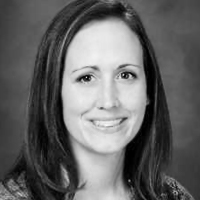This text-based course is a transcript of the webinar, Documenting in Skilled Nursing Facilities: Part 1, presented by Renee Kinder, MS, CCC-SLP, RAC-CT.
Learning Objectives
After this course, readers will be able to:
- Create functional goal targets to promote reimbursement of services and evidence outcomes
- Identify key areas for documenting reasonable and necessary services
- Describe procedures which support skilled care
Introduction and Overview
This is Part 1 of a two-part series on documenting in skilled nursing facilities. Providing quality documentation for skilled services provided to Medicare beneficiaries begins with having an adequate understanding of regulations within the Medicare Benefit Policy Manual and your local coverage determinations. This course will provide guidance on documenting plan of care requirements to support skilled speech pathology needs to Medicare beneficiaries, including guidance for collecting baseline and prior level of function data in addition to writing functional, measurable short-term objectives and long-term goals.
Know Your Regulations
Any time that you are working with Medicare beneficiaries or Medicare population, step one will be to know your regulations. They are all available for public viewing. The key foundational regulatory information that you will need to be aware of can be found in Medicare Benefit Policy Manual, primarily chapter 15 section 220, our national and local coverage determinations. National coverage determinations delegate overall Medicare regulations, and local coverage determinations will be regional specific. Depending on where you practice, there will be different regionally specific regulations that delegate the care that you provide to Medicare patients. Please note that all of the Medicare references in this course are verbatim, taken directly from Medicare regulation.
Indications for Speech Therapy Services
Beginning with Benefit Policy Manual chapter 15 section 220, it indicates that, “speech-language pathology services are those services provided within the scope of practice of speech-language pathologists.” These services are “necessary for the diagnosis and treatment of speech and language disorders, which result in communication disabilities and for the diagnosis and treatment of swallowing disorders (dysphagia).” This is true “regardless of the presence of a communication disability.” It is important to know that we will provide care regardless of a communication disability, especially when advocating for patients who are candidates for our services. Early in my SLP career, when working in skilled nursing facilities, I did on occasion hear that Patient A would not be a candidate for speech therapy services because “They have A, B, or C diagnosis," or, "They're advanced," or, "They don't understand.” It's very clear in Medicare regulation that regardless of a presence of a communication disability, skilled speech therapy services may be indicated.
There are four primary components that help us to determine if services are “reasonable and necessary.” All four of these criteria must be met and clearly included in your documentation and plan of care.

